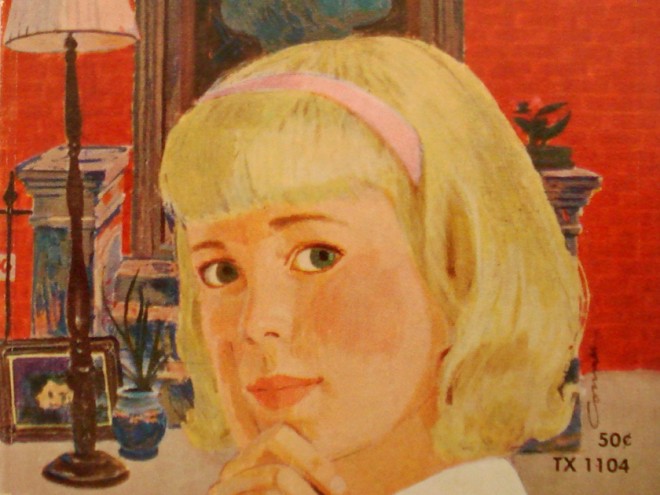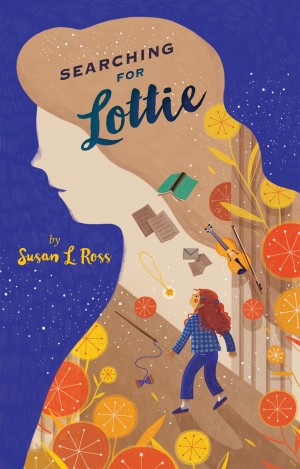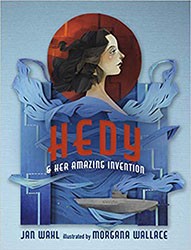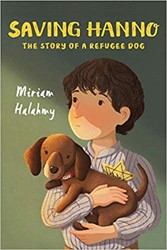It has been both well documented and personally experienced that some survivors of the Shoah remained reluctant to talk about their suffering. Sometimes this choice extended throughout their lives. In Broken Strings, Eric Walters and Kathy Kacer follow the relationship between junior high school student Shirli Berman and her Zayde, through the lens of Shirli’s disappointments and insecurities, and her aged grandfather’s need to allow her to share the terrible truths of his past. The novel takes place in the aftermath of September 11, 2001, when the sense of safety of Shirli’s New Jersey community has been shattered, and everyday routines have taken on a fragile dimension. By the end of the book, middle grade readers will have learned a great deal about the inhumanity of Nazism, as well as about the scars left on their victims. They will also come away with a sense of the damaging effects of silence, and the hope that, at least sometimes, burdens can be shared.
Shirli is a musical theater fanatic, and the book is full of references to songs, production terms, and Fiddler on the Roof lore. Determined to win the role of Hodel in her school’s play because of the opportunity it offers to showcase her voice, Shirli is heartbroken to instead be offered the role of Golde. For all its dramatic richness, playing the part of the Jewish matriarch is a source of bitter frustration: “I’m playing everybody’s mother. I’m playing an old Jewish woman who has no solo.” Shirli is both convincing and thoroughly likeable. She is not self-absorbed or insensitive, just an ambitious and sensitive young adult whose life so far has been moving towards a goal, one which now seems elusive.
In searching for props in her grandfather’s attic, she uncovers objects from his past which eventually lead to a painful journey for him, as well as a closeness with his family which his keeping secrets had prevented.
Zayde is a complex person, not a symbol of the Holocaust. The authors build his character through details; he is an avid follower of wrestling on television, at the same time that he continues to dress formally in the button-down shirts and dress pants of his former career as an accountant. Shirli shops for him, bringing him the requisite number of bananas and the dark rye bread which he prefers. At times, the authors seem to demand a lot of him, as he is transformed from a lonely old man to an outgoing friend of Shirli’s classmates. In particular, his ready acceptance of his granddaughter’s crush on a non-Jewish boy may seem surprising. Yet the losses he has suffered, including the recent one of his wife, make his flexibility more plausible. Readers will accept that his rigid self-control must have masked many parts of his nature as well as his past.
Music is a deep bond between Shirli and Zayde and it provides a link across generations. From the silent violin stored in Zayde’s attic, to Zayde’s explanation of traditional Eastern European klezmer musicians who made their instruments speak with a human voice, the role of music in Jewish culture is an essential part of the story. Readers with a long and sentimental attachment to Fiddler, whose Jewish lineage Shirli enthusiastically details to Zayde, will appreciate it with renewed pride.
The larger community’s participation in the school’s production helps to unite them, as they contemplate the destructive nature of prejudice after the recent terrorist attack. If Zayde’s friendship with a Hindu store owner, and his vocal support of the Muslim student playing the role of Perchik (“Do you know what I feel about a Muslim playing a Jew?…I feel so happy.”), seem a bit didactic, that may be because the authors have used their novel to rescue a terrible past, and to teach readers about a different kind of future.
Broken Strings includes an informative “Authors’ Note” which helps put the book in historical perspective for readers.
Emily Schneider writes about literature, feminism, and culture for Tablet, The Forward, The Horn Book, and other publications, and writes about children’s books on her blog. She has a Ph.D. in Romance Languages and Literatures.





